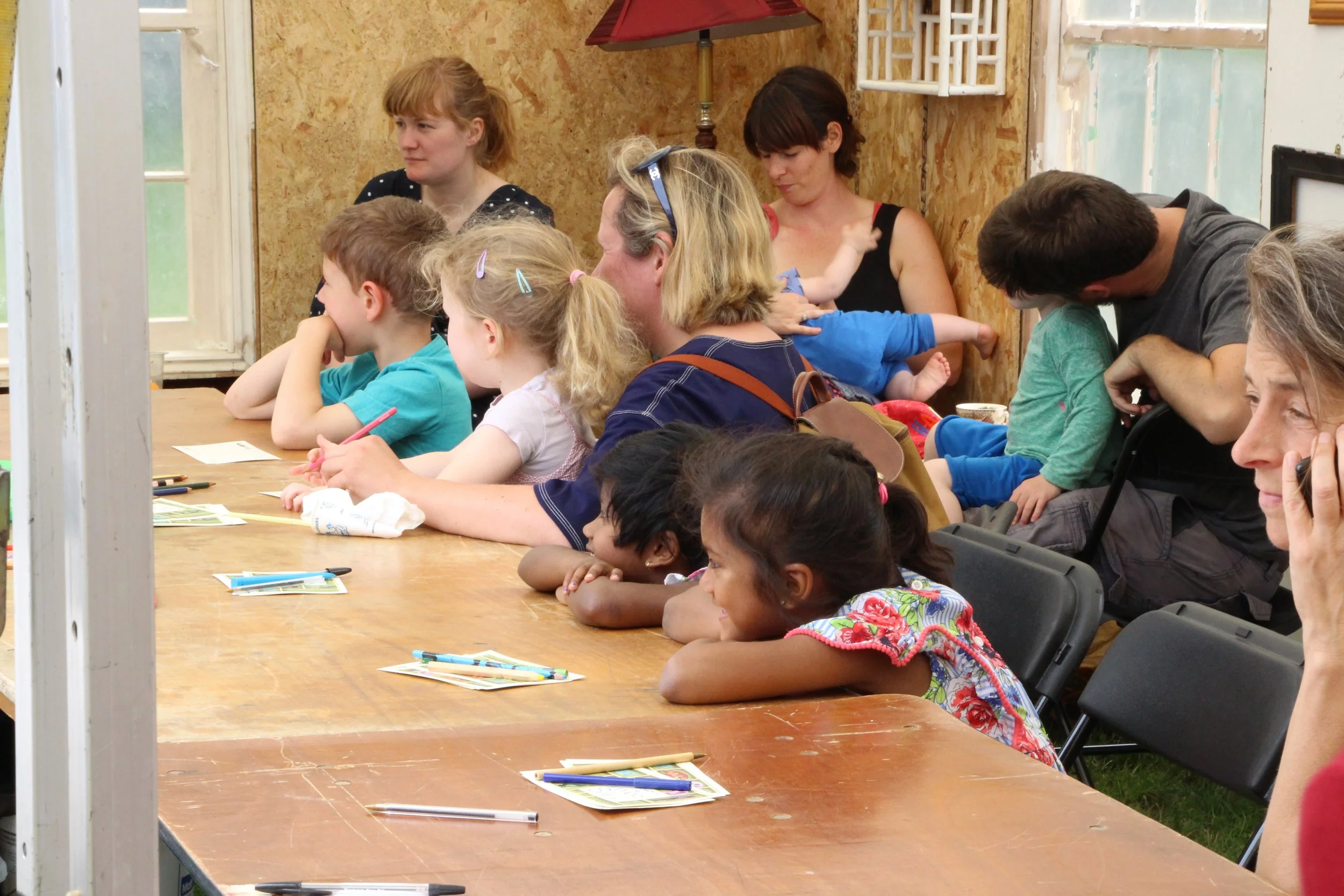Dash arts’ academic journey
Our Artistic Director Josephine Burton reflects on how Academic Collaborations Are Shaping Our Theatre work and Practice
It didn’t happen overnight, but looking back, I can see how Dash Arts’ work has become more and more entwined with academia. What started as the occasional conversation with a scholar has grown into deep, collaborative partnerships that have opened up new dimensions in my own practice as a theatremaker, shaping how I approach storytelling, character, and world-building. These partnerships have helped us push the boundaries of our work, making it more informed, resonant, and collaborative.
One of the most transformative experiences for me has been working with Ruth Livesey, a Professor of English at Royal Holloway University and George Eliot scholar. Together, we adapted Middlemarch for The Great Middlemarch Mystery, our site-specific promenade production in Coventry. I remember the thrill of stepping into Eliot’s world through Ruth’s eyes, guided by her deep understanding of 19th-century literature, Middle England, and Eliot’s unique perspective. Our collaboration was more than just sharing expertise; it was a true partnership. Ruth would bring her incredible knowledge of Eliot and her wider context, and I’d bring my practice as a theatremaker, weaving together our insights to shape the adaptation. Together, we crafted a script that blended Eliot’s voice with a modern perspective, translating the themes of Middlemarch into something that could connect with audiences today.
Ruth’s insights weren’t just intellectual—they had a tangible impact on how we brought the story to life. Our conversations sparked ideas about how we could use Coventry’s landscape to echo the novel’s themes, transforming streets, buildings, and everyday spaces into an immersive backdrop for Eliot’s world. I loved being part of the evolving project, knowing that it was rooted in this fusion of our strengths and sensibilities. It was an amazing illustration of how the best creative work often comes from the meeting of different perspectives.
Another highlight of this academic journey has been working with Professor Alan Finlayson and Dr. Henriette van der Blom in developing our speech-writing workshops for Our Public House, a project centred on the power of political rhetoric. Alan, an expert in political communication, taught us so much about the art of making a convincing argument and the subtleties of turning a phrase. Henriette, a specialist in ancient rhetoric, brought the timeless techniques of classical oratory into the mix, grounding us in skills that have been shaping public discourse for centuries.
The process wasn’t just about listening and learning from them, though. Alongside my colleague Cristina Catalina, we integrated our experience as theatremakers, blending drama-based techniques with the rigorous insights from Alan and Henriette to create an environment that made speech writing and delivery accessible and transformative. We wanted participants to feel they could take risks, play with language, and discover their voices, and that required a careful balance of structure and creativity. Together, we designed exercises that made these sessions energising and playful, creating a relaxed environment where participants could write and deliver speeches about issues they care deeply about, empowered with the tools they need to make an impact.
It’s been so rewarding to watch people in these workshops find their voices, fueled by the co-creative environment we’ve built. This isn’t just about creating theatre; it’s about engaging people in dialogue, giving them confidence, and helping them find new ways to express what matters most to them. I’ve seen how Alan’s academic approach to argumentation, Henriette’s knowledge of rhetoric, and our own experience with performance all combine in ways that are fresh, authentic, and genuinely impactful. And every time we run these sessions, I learn something new about what it means to communicate effectively and passionately.
And these are just two projects, with three academics! Over the years, I’ve worked with an incredible range of researchers, each bringing fresh perspectives that have enriched our productions in so many ways. There was the Memory Safe, our project with UCL’s Centre for Advanced Spatial Analysis, which helped us explore themes of migration and memory through an interactive digital experience and accompanying installation the Queen Elizabeth Park The Reckoning, our upcoming theatre piece informed by insights from the University of Cambridge’s Department of Ukrainian Studies, grounding the story in real testimonies from the ongoing war in Ukraine and an entirely new project, Songs for Solidarity, that we’re starting next month with academics of University of Oxford uniting artists, researchers, and refugees to develop a new music-theatre performance,. Each collaboration feels like its own journey, adding authenticity, fresh understanding, and relevance to every aspect of our work.
Looking back on these collaborations, I realise how much they’ve enriched my work, giving me new insights and tools that I never expected to find in academic partnerships. Working with Ruth, Alan, Henriette, and so many others hasn’t just deepened the authenticity of our productions; it’s changed me as a theatremaker, bringing fresh layers to my own creative practice. And ultimately, it’s about more than the work we create—it’s about the relationships and discoveries along the way.
These collaborations remind me why we do what we do at Dash Arts: to listen, learn, and create something meaningful. Academic insights may not always be what you think of when it comes to making art, but for us, they’ve been the spark that takes our projects to new places and brings the world of our audiences that much closer.



